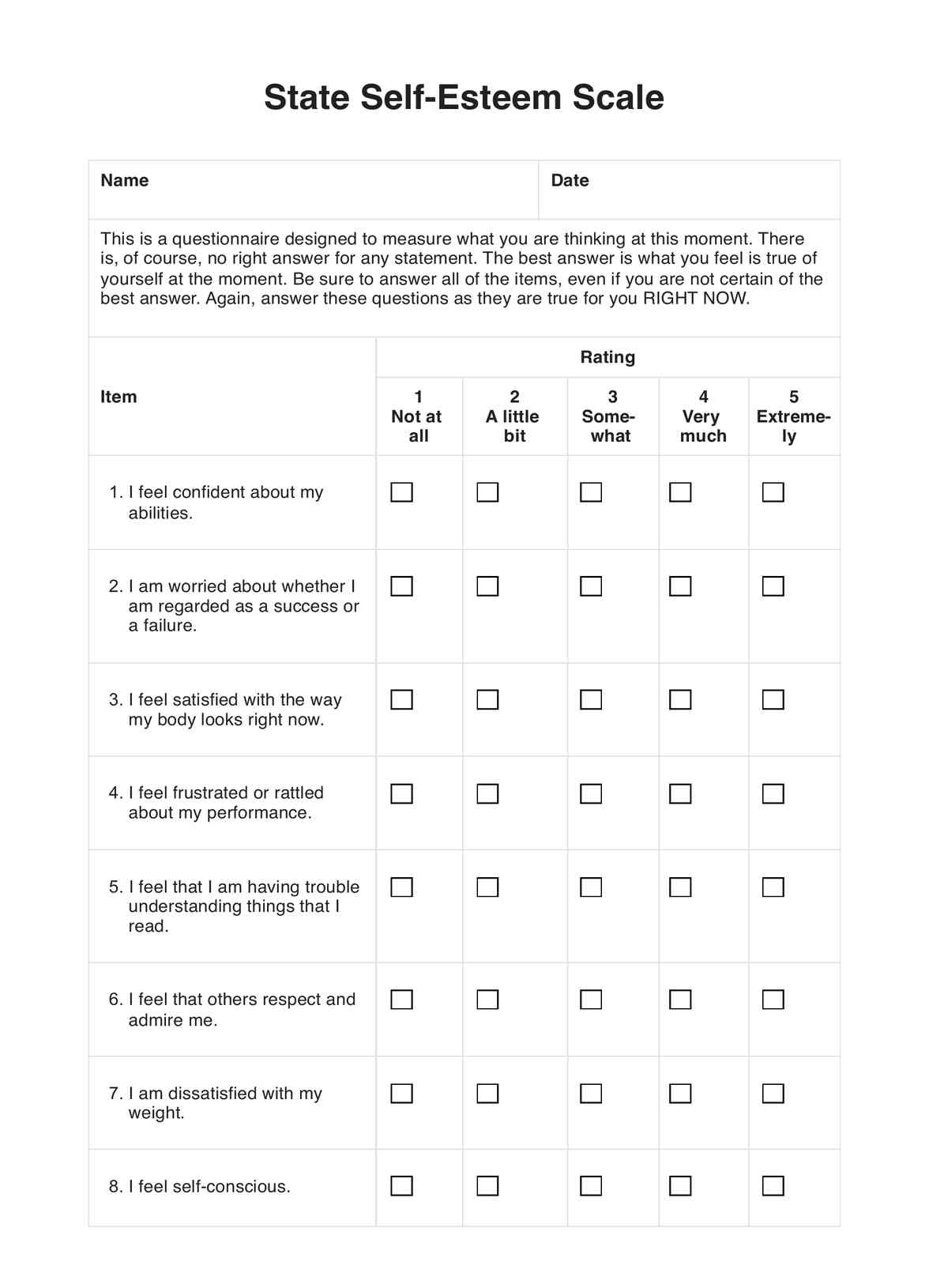The State Self-Esteem Scale (SSES) is a 20-item self-report measure of state self-esteem, which is defined as a person’s momentary evaluation of their worth as a person. To use the SSES, respondents are asked to rate how they feel about themselves at the moment on a 5-point scale, ranging from 1 (not at all) to 5 (extremely). The scale consists of three subscales: performance, social, and appearance state self-esteem.

Self-Esteem Scales
Looking for a State Self-Esteem Scale? Download our free PDF and learn more about how to measure self-esteem using this scale.
Self-Esteem Scales Template
Commonly asked questions
The State Self-Esteem Scale (SSES) has been shown to have good reliability and validity. The scale has high internal consistency, with Cronbach’s alpha coefficients ranging from 0.85 to 0.91. Additionally, the SSES has good test-retest reliability, with correlations between test and retest scores ranging from 0.70 to 0.80. This means that the scale is relatively stable over time and measures the same construct consistently.
Trait self-esteem refers to an individual’s enduring sense of self-worth, while state self-esteem is a momentary evaluation of one’s worth. State self-esteem can fluctuate over time and is influenced by situational factors, whereas trait self-esteem is a more stable construct.
EHR and practice management software
Get started for free
*No credit card required
Free
$0/usd
Unlimited clients
Telehealth
1GB of storage
Client portal text
Automated billing and online payments











